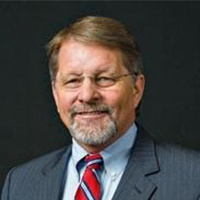Bethania Criminal Lawyer, North Carolina
Dudley A. Witt
✓ VERIFIEDAccident & Injury, Lawsuit & Dispute, Criminal, Estate, Government
Dudley Witt is the attorney that other attorneys want as a partner in the courtroom. He’s adept at civil, criminal and business cases, and he posses... (more)
FREE CONSULTATION
CONTACTFREE CONSULTATION
CONTACTChristopher L. Beal
Wills & Probate, Family Law, Criminal, Personal Injury
Status: In Good Standing Licensed: 42 Years
Clarke Dummit
Criminal, DUI-DWI, Divorce & Family Law, Personal Injury, Wrongful Death
Status: In Good Standing Licensed: 38 Years
FREE CONSULTATION
CONTACT

